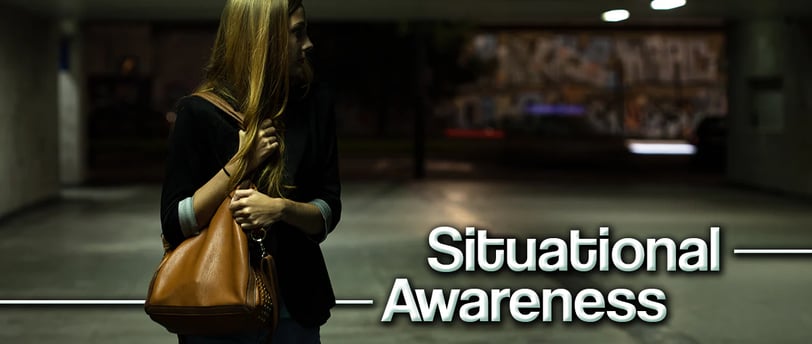The Power of Awareness: Enhancing Personal Safety Through Situational Awareness
9/1/20242 min read


The Power of Awareness: Enhancing Personal Safety Through Situational Awareness
In today's fast-paced world, ensuring personal safety is more critical than ever. While self-defense classes and security gadgets have their place, one of the most effective ways to protect yourself is something we all have access to: situational awareness. By simply being more observant and aware of your surroundings, you can significantly reduce the risk of becoming a victim of crime.
Understanding Situational Awareness
Situational awareness is the ability to identify, process, and comprehend information about what is happening around you. It involves being conscious of your environment, understanding the potential threats, and making informed decisions to stay safe. This skill is not just for security professionals or law enforcement officers; it's a valuable tool for everyone.
The Benefits of Being Observant
Prevention of Crime: Criminals often look for easy targets. By being alert and aware, you make yourself a less appealing target. Observing your surroundings can help you spot suspicious behavior early and take action to avoid potential threats.
Quick Response: If you notice something unusual or feel unsafe, your heightened awareness allows you to react quickly. This can mean moving to a safer location, calling for help, or preparing to defend yourself if necessary.
Increased Confidence: Knowing that you are actively paying attention to your surroundings can boost your confidence. This, in turn, can make you appear more assertive and less vulnerable to potential threats.
Practical Tips for Enhancing Situational Awareness
Stay Off Your Phone: While smartphones are incredibly useful, they can also be major distractions. When walking or in public spaces, keep your phone in your pocket and focus on what's happening around you.
Trust Your Instincts: If something feels off, trust your gut. Our instincts are often our first line of defense. If a situation or person makes you uncomfortable, remove yourself from the area as soon as possible.
Scan Your Environment: Regularly scan your surroundings. Take note of people, exits, and any unusual activities. This doesn't mean you should be paranoid, but rather calmly and systematically aware.
Plan Your Routes: Whether you're walking to your car in a parking lot or taking a new route home, plan your paths in advance. Avoid poorly lit or isolated areas when possible, and always have an alternative route in mind.
Stay in Condition Yellow: Security experts use a color code to describe levels of awareness. "Condition Yellow" is a relaxed alertness, where you're aware of your surroundings but not paranoid. Strive to stay in this state when in public.
Use Reflections: Mirrors and windows can help you see what's happening behind you without turning around. Use these to your advantage, especially in potentially vulnerable locations like elevators or parking garages.
Be Aware of Blind Spots: When entering a new environment, identify places where someone could hide. This includes corners, doorways, and areas behind large objects. Avoid walking too close to these spots.
Travel in Groups: There's safety in numbers. When possible, travel with friends or family, especially in unfamiliar or high-risk areas.
Know Your Exits: In any building or public space, always identify multiple exits. In an emergency, knowing the fastest way out can be crucial.
Keep a Safe Distance: Maintain a comfortable distance from strangers. This gives you more time to react if someone tries to harm you.
Conclusion
Being observant and aware of your surroundings is a simple yet powerful way to enhance your personal safety. By practicing good situational awareness, you can prevent potential threats, respond quickly to dangers, and navigate your daily life with greater confidence. Remember, the best way to protect yourself is to stay alert, trust your instincts, and always be prepared. Stay safe!


